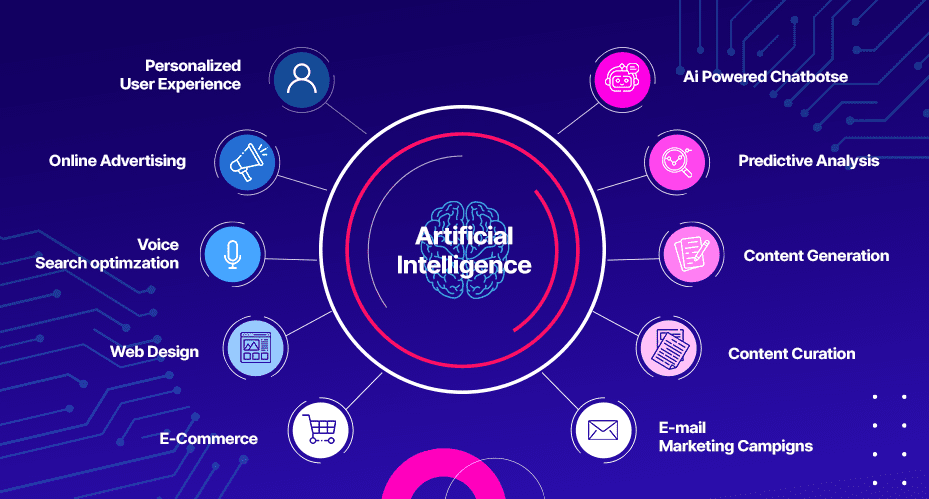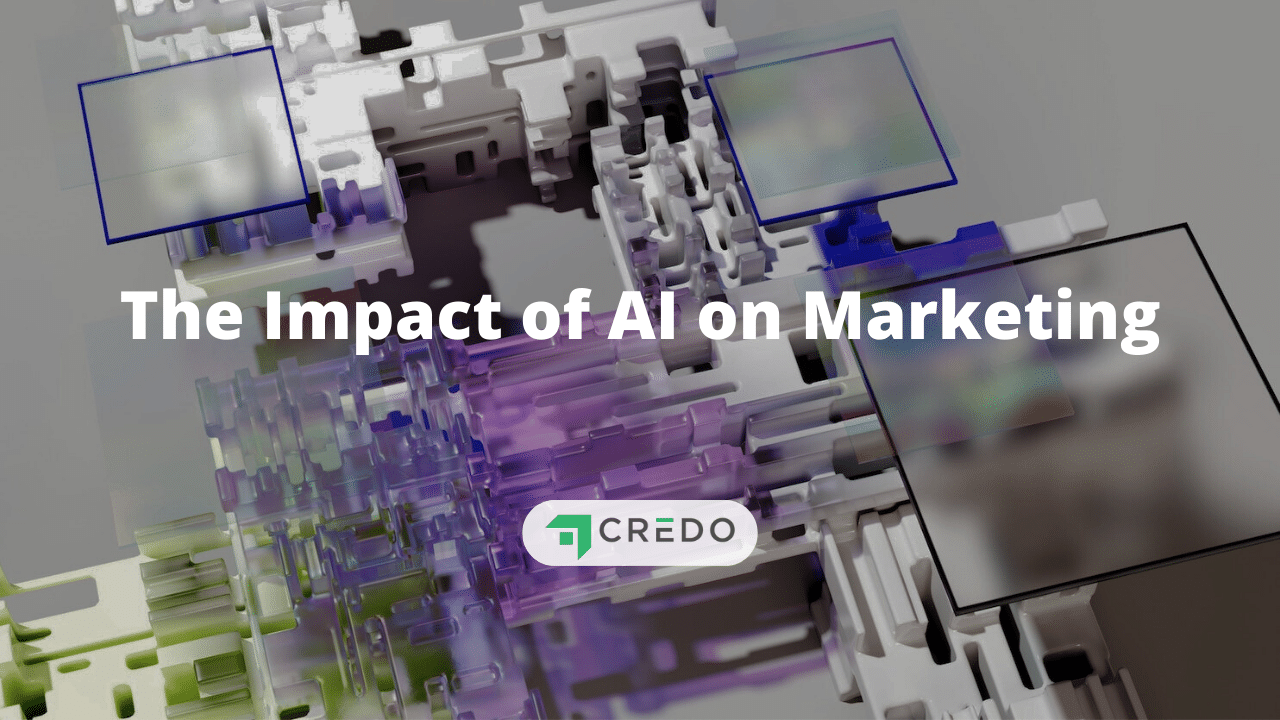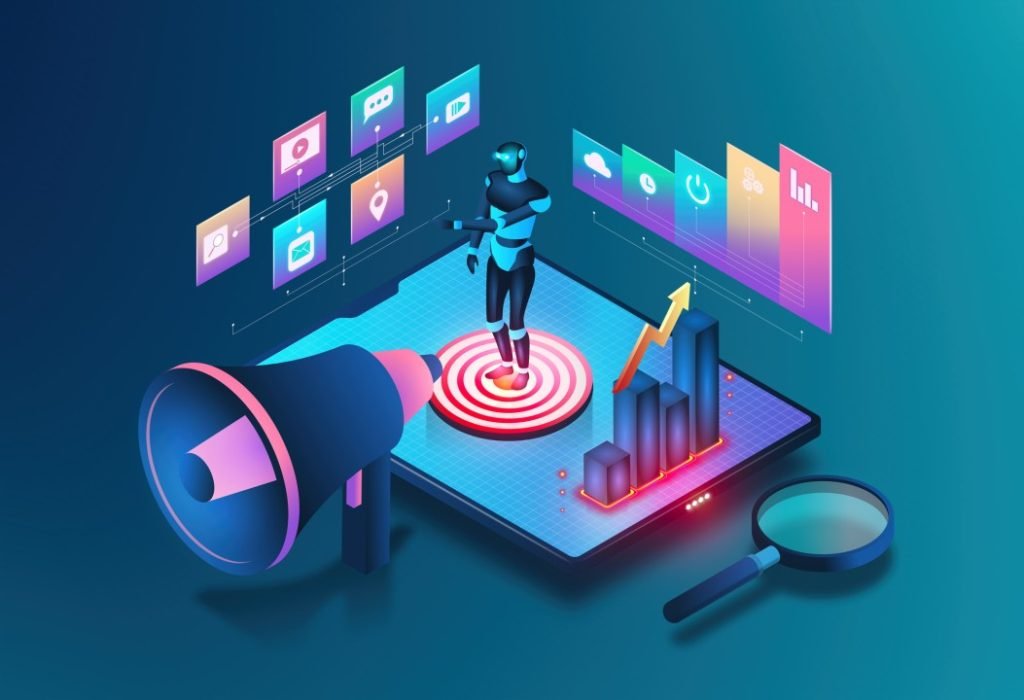Artificial Intelligence (AI) is changing the marketing world rapidly. Brands use AI to connect with customers more effectively.
AI has brought significant changes to marketing strategies. It helps businesses understand their audience better, predict trends, and personalize customer experiences. AI tools analyze vast amounts of data quickly, offering insights that were once impossible to obtain. Marketers can now create more targeted campaigns and save time on repetitive tasks.
Understanding AI’s impact on marketing is crucial for staying competitive. This blog will explore how AI is transforming marketing practices and what it means for the future. Dive in to learn more about the exciting changes AI brings to the marketing industry.

Credit: eminence.ch
Introduction To Ai In Marketing
Artificial intelligence (AI) is transforming the marketing landscape. It helps businesses understand customer behavior. AI can predict future trends and improve marketing strategies. This introduction will explore AI’s impact on marketing.
History Of Ai In Marketing
AI in marketing started decades ago. Initially, it was simple. Businesses used basic algorithms to analyze data. Over time, AI became more advanced. Marketers started using machine learning. This allowed for better predictions. AI could then personalize customer experiences. This evolution changed marketing forever.
Current Trends
Today, AI is everywhere in marketing. Chatbots are common on websites. They provide instant customer support. AI also helps with email marketing. It can send personalized messages. Marketers use AI for social media. It analyzes user behavior to create targeted ads. Predictive analytics is another trend. AI forecasts future customer actions. This helps businesses plan better. AI tools are becoming more user-friendly. Small businesses can now use them easily. AI in marketing keeps growing. It’s an exciting time.

Credit: www.linkedin.com
Personalization And Customer Experience
The impact of AI on marketing is profound. One key area is personalization. AI helps businesses tailor experiences for each customer. This leads to better engagement and satisfaction.
AI’s role in personalization transforms the customer experience. It uses data to predict customer needs. With AI, marketers can create more relevant content. This makes customers feel valued and understood.
Targeted Advertising
Targeted advertising is more effective with AI. It analyzes customer data to identify preferences. This helps in creating ads that resonate with specific audiences. AI ensures the right message reaches the right person.
AI can adjust ads in real-time. This improves ad performance and customer engagement. With AI, advertisers can spend their budget more wisely.
Customer Journey Mapping
Customer journey mapping is crucial for understanding customer behavior. AI helps in tracking and analyzing every interaction. This helps in identifying patterns and trends. Marketers can then create strategies that improve the customer journey.
AI can predict future behaviors based on past actions. This allows businesses to anticipate customer needs. With AI, the entire customer journey becomes smoother and more enjoyable.
Predictive Analytics
Predictive analytics has changed how marketers understand data. It uses AI to forecast future trends based on past data. This helps businesses stay ahead of the curve. Predictive analytics can improve marketing strategies. It allows for better decision-making and more efficient use of resources.
Forecasting Trends
AI helps marketers forecast trends. It analyzes large amounts of data quickly. This data comes from various sources. Social media, customer feedback, and sales data are some examples. By studying this data, AI identifies patterns and predicts future trends. These insights allow marketers to plan campaigns. They can launch products at the right time. They can also adjust strategies based on predicted trends.
Forecasting trends with AI reduces guesswork. Marketers can rely on data-driven decisions. This leads to more effective marketing efforts. It also helps in understanding market demands. Businesses can stay competitive and meet customer needs more efficiently.
Consumer Behavior Analysis
AI plays a crucial role in analyzing consumer behavior. It collects and examines data from various interactions. This includes online purchases, browsing history, and social media activity. By understanding these behaviors, marketers can create personalized experiences. They can tailor content and offers to individual preferences.
Consumer behavior analysis with AI helps in targeting the right audience. It increases the chances of converting leads into customers. Marketers can also identify potential issues. They can address them before they affect customer satisfaction. This proactive approach improves the overall customer experience.
In summary, predictive analytics is a powerful tool in marketing. It helps forecast trends and analyze consumer behavior. This leads to more informed decisions and better marketing strategies.

Credit: getcredo.com
Content Creation And Curation
AI is transforming marketing through efficient content creation and curation. It enhances personalization, boosts engagement, and streamlines processes. AI tools help marketers craft relevant and timely content, improving overall campaign effectiveness.
In the realm of marketing, content creation and curation have seen a significant transformation. AI has ushered in new methods to generate and recommend content. This shift helps brands engage audiences more effectively.Automated Content Generation
AI tools can now write articles, blogs, and social media posts. These tools use algorithms to create relevant and engaging content. They analyze data to understand what resonates with the audience. This process saves time and ensures consistent output. Businesses can maintain a steady flow of content without overwhelming their teams.Curated Content Recommendations
AI also excels at recommending curated content. It analyzes user behavior and preferences. Based on this data, it suggests content that users will likely enjoy. This keeps audiences engaged and coming back for more. Personalized recommendations can improve user experience. They make content consumption easier and more enjoyable. In summary, AI impacts content creation and curation greatly. It makes the process more efficient and personalized. This benefits both businesses and their audiences.Chatbots And Customer Service
The rise of AI in marketing has transformed many aspects of the industry. One significant change is in customer service. Chatbots are now a key component of customer interactions. They offer numerous benefits, including round-the-clock support and improved user engagement.
24/7 Customer Support
Chatbots provide 24/7 customer support. This ensures customers can get help at any time. No more waiting for business hours. This availability enhances the customer experience.
With AI-powered chatbots, businesses can respond to queries instantly. This speed helps resolve issues quickly. Customers appreciate fast responses. It builds trust and loyalty.
Businesses also save costs with chatbots. They reduce the need for a large support team. This allows resources to be allocated elsewhere. The result is a more efficient operation.
Enhanced User Interactions
Chatbots enhance user interactions. They use natural language processing (NLP) to understand and respond to queries. This makes conversations feel more natural. Users feel like they are talking to a real person.
AI chatbots can handle multiple queries simultaneously. This ensures no customer feels ignored. Everyone gets timely responses.
Chatbots can also provide personalized responses. They analyze user data to offer tailored solutions. This personal touch improves the customer experience. It makes users feel valued.
The ability to handle complex queries is another advantage. Advanced chatbots can guide users through troubleshooting steps. This reduces the need for human intervention.
Here is a comparison table showing the benefits of chatbots:
| Benefits | Description |
|---|---|
| 24/7 Support | Available anytime, improving customer satisfaction. |
| Cost Efficiency | Reduces the need for a large support team. |
| Instant Responses | Quickly resolves customer queries. |
| Personalized Interactions | Provides tailored responses based on user data. |
| Scalability | Handles multiple queries at once. |
In summary, chatbots are revolutionizing customer service. Their round-the-clock availability and enhanced interactions are invaluable. Businesses and customers both benefit from this technology.
Social Media Marketing
Social Media Marketing has drastically changed with the advent of AI. Businesses can now leverage AI to better understand their audiences, tailor their messages, and optimize their ad spend. AI’s ability to process vast amounts of data in real-time allows marketers to make more informed decisions. Two significant areas where AI impacts social media marketing are sentiment analysis and optimized ad placements.
Sentiment Analysis
AI-powered sentiment analysis helps businesses understand customer feelings. It analyzes social media posts, comments, and reviews to gauge public mood. This insight allows companies to adjust their strategies based on customer sentiment. For example, if a new product receives negative feedback, a company can quickly address the issues.
Sentiment analysis also aids in crisis management. By detecting negative sentiments early, businesses can respond promptly. This helps maintain their reputation and customer trust. Moreover, sentiment analysis can identify brand advocates. These are customers who consistently speak positively about a brand.
Here is a breakdown of how sentiment analysis benefits social media marketing:
- Real-time Feedback: Immediate insights into customer opinions.
- Crisis Management: Early detection of negative trends.
- Identify Advocates: Find and engage with loyal customers.
Optimized Ad Placements
AI enhances ad placements on social media. It analyzes user data to target ads more accurately. This ensures ads reach the most relevant audience. AI considers various factors like user behavior, demographics, and interests.
Optimized ad placements result in better ROI. Businesses spend less on ads and get higher engagement. AI also helps in A/B testing. It can quickly determine which ad versions perform better.
Below are the advantages of using AI for ad placements:
| Benefit | Description |
|---|---|
| Precision Targeting | Ads reach users who are most likely to engage. |
| Cost Efficiency | Lower ad spend with higher returns. |
| Performance Insights | Data-driven decisions improve ad effectiveness. |
In summary, AI’s role in social media marketing is significant. Sentiment analysis and optimized ad placements are key areas where AI makes a difference.
Data-driven Decision Making
In the modern marketing landscape, data-driven decision making is critical. With AI, marketers can make more informed choices. They can analyze vast amounts of data quickly. This helps in creating effective marketing strategies that align with customer needs. Here, we delve into how AI impacts data-driven decision making in marketing.
Real-time Analytics
AI offers real-time analytics, which is a powerful tool. Marketers can see customer behavior instantly. This means immediate adjustments to campaigns are possible. For instance, if an ad isn’t performing well, it can be tweaked on the fly. Real-time data helps in understanding trends as they happen. This ensures that marketing efforts are always relevant.
| Benefits | Impact |
|---|---|
| Immediate Feedback | Quick adjustments to campaigns |
| Trend Analysis | Stay ahead of market trends |
| Customer Insights | Better understanding of customer needs |
Marketing Strategy Optimization
AI aids in optimizing marketing strategies. It analyzes past data to suggest future actions. This is more efficient than manual analysis. Marketers can use predictive analytics to foresee customer behavior. This helps in creating campaigns that are more likely to succeed.
- AI examines past campaigns for insights.
- It predicts future trends and customer actions.
- Helps in tailoring marketing messages for better engagement.
AI tools can also segment audiences more precisely. This means personalized marketing on a large scale is achievable. Marketers can create specific messages for different customer segments. This personalization increases engagement and conversion rates.
Ethical Considerations
The integration of Artificial Intelligence (AI) into marketing strategies offers numerous benefits. However, it also brings ethical considerations. Marketers must address these concerns to ensure responsible and effective use of AI technologies. This section explores two key ethical issues: privacy and bias.
Privacy Concerns
AI often relies on vast amounts of data. This data can include personal information from customers. Using this data without consent can lead to privacy violations. Marketers must ensure they have clear policies. Customers should know how their data is used.
Transparency is crucial. Companies should inform users about data collection. They should explain how AI processes their information. Providing options to opt-out can build trust. Respecting privacy can strengthen customer relationships.
Bias And Fairness
AI systems can sometimes reflect human biases. These biases can result in unfair treatment. For example, biased algorithms may favor certain groups. This can lead to discrimination in marketing campaigns. Ensuring fairness is essential.
Marketers should regularly audit their AI systems. They should check for any bias in the data or algorithms. Diverse teams can help identify and address biases. Training AI on diverse data sets can also reduce bias.
Fairness in AI leads to better customer experiences. It ensures all groups are treated equally. This can enhance the brand’s reputation. Ethical AI use is key to sustainable marketing.
Future Prospects
The impact of AI on marketing is profound. It is shaping the future of the industry. As AI technologies evolve, the prospects for marketing look promising. Businesses will have more tools to understand and engage their customers. Let’s explore the future prospects of AI in marketing.
Emerging Technologies
Several emerging technologies will change marketing strategies. Here are a few:
- Chatbots: These provide instant customer support.
- Personalization Engines: They tailor content to individual users.
- Predictive Analytics: These help forecast customer behavior.
These technologies enhance customer experiences. They make interactions more efficient and personalized.
Long-term Impacts
AI’s long-term impacts on marketing are significant. They can be categorized as follows:
| Impact | Description |
|---|---|
| Customer Insights | AI gathers and analyzes vast amounts of data. |
| Automation | Routine tasks will be automated, saving time and resources. |
| Content Creation | AI can generate personalized content quickly. |
These impacts will transform the marketing landscape. Businesses will better understand their customers. They will also create more relevant and engaging content.
Frequently Asked Questions
How Does Ai Benefit Marketing?
AI benefits marketing by automating tasks, analyzing data, and personalizing customer experiences. It enhances campaign efficiency and improves targeting accuracy.
Can Ai Improve Customer Engagement?
Yes, AI can improve customer engagement through personalized recommendations, chatbots, and predictive analytics. This leads to higher satisfaction and loyalty.
Is Ai Cost-effective For Marketing?
AI is cost-effective as it reduces manual work, optimizes ad spend, and increases ROI. It streamlines marketing processes.
How Does Ai Analyze Marketing Data?
AI analyzes marketing data using machine learning algorithms. It identifies patterns, predicts trends, and provides actionable insights for better decision-making.
Conclusion
AI is reshaping marketing. Businesses can target audiences with precision. Personalized content reaches customers more effectively. Automation saves time and boosts efficiency. Data insights improve decision-making. AI tools enhance customer experiences. Adapt to these changes to stay competitive. Embrace AI in your strategies.
The future of marketing is bright with AI.




